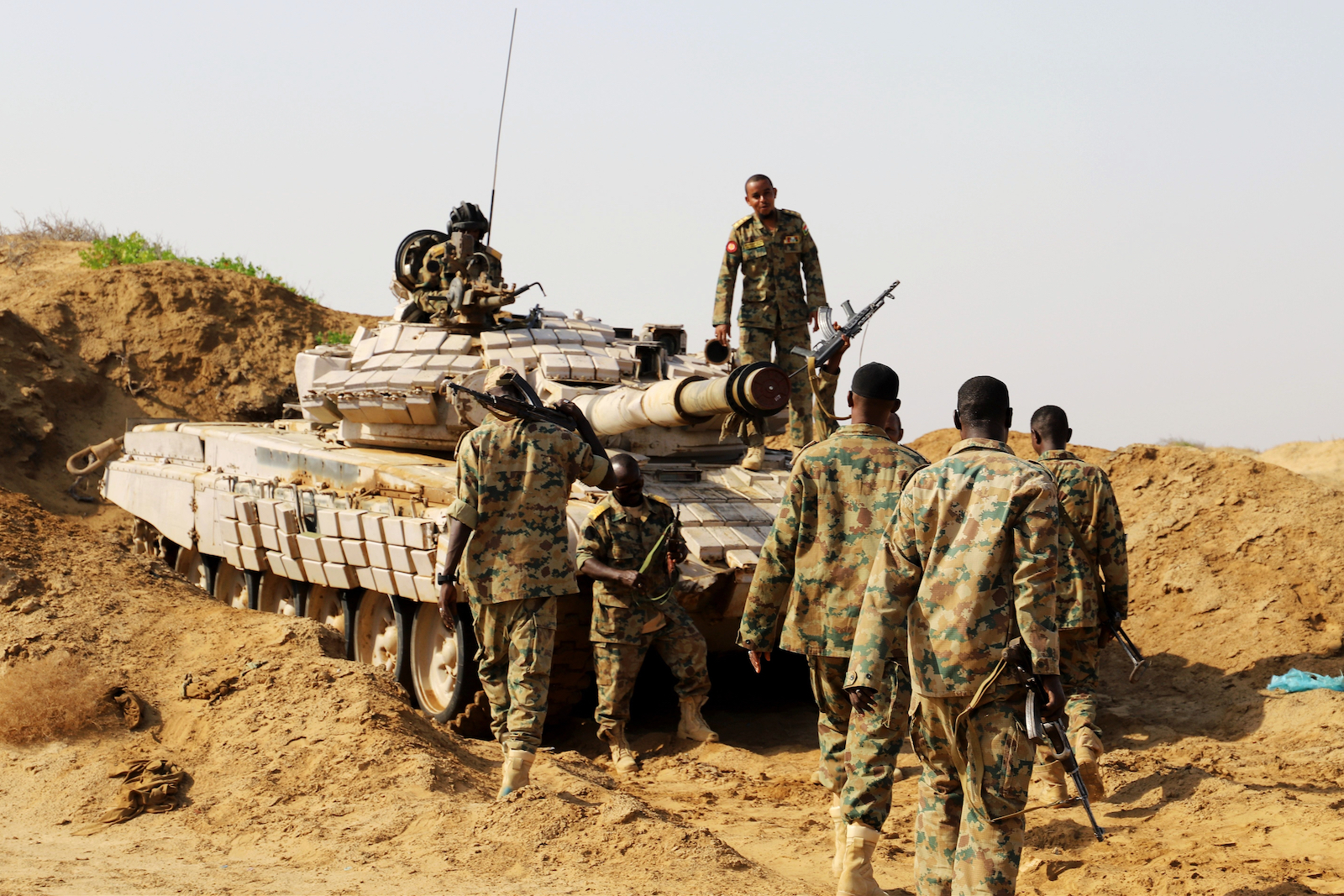
Iran’s New Proxy Sudan Serves as Danger to the Middle East
Sudan’s signing of the Abraham Accords, establishing normalization of relations with Israel in 2020, was a significant diplomatic development acknowledged at the time in a joint statement by the United States, Sudan, and Israel.
However, recent events have sparked concerns in Jerusalem regarding Sudan’s renewed ties with Iran. In the aftermath of conflict in Gaza, Sudan has rekindled diplomatic relations with Iran, diverging from its previous stance when it severed ties in 2016, aligning itself with the moderate Sunni axis opposing Iran.
Sudan’s internal instability appears to be a driving factor in this shift. President Abdel Fattah al-Burhan, leading Sudan’s interim government, announced the renewal of diplomatic ties with Iran on October 9, 2023, days after the October 7 terrorist attack by Hamas.
Sources close to President al-Burhan suggest that his decision stemmed from the need for weapons, especially in light of military support received by Mohamed Hamdan Dagalo, commonly known as Hemetti, who leads the Rapid Support Forces (RSF), a militia vying for power and engaged in a brutal military campaign against government forces.
Sudan originally hoped to rely on Israel for weapons but when that assistance didn’t materialize, Sudan turned to Iran. This development is likely concerning for Israel, as Sudan historically served as a transit point for Iranian weapons bound for Hamas in Gaza via Sudan and Egypt.
Besides the implications for normalization with an Arab partner, Sudan’s renewed ties with Iran pose a significant threat. Israel faces challenges regarding the occupation of the Rafah area and the “Philadelphia Corridor,” a key smuggling route from Egypt to Gaza, facilitating the transfer of Iranian weapons via Sudan to Hamas.
The situation is complicated as the Biden administration, Egypt, and Saudi Arabia support President al-Burhan, while Russia, the United Arab Emirates, Eritrea, and forces loyal to General Khalifa Haftar in Libya back his opponent, Hemetti.
Iran, leading the so-called “axis of evil,” has now secured Sudan’s alignment with its interests. Abdel Fattah al-Burhan, seeking arms support, may be inclined to sever ties with the United States and Israel to procure weapons from Iran.
Reports indicate that Iran has begun supplying weapons to government forces, weakened by civil war, with armed Mohajir-6 multi-role UAVs. Hemetti’s future stance toward Iran may depend on his victory in Sudan’s bloody internal power struggle.
While Israel remains uninvolved in Sudan’s internal dynamics, its strategic location and past ties with Hamas raise concerns. Sudan rejected Iran’s request to establish a naval base on the Red Sea shores this year but may succumb to pressure in the future.
Israel’s involvement in the new U.S. coalition forged by the Biden administration becomes increasingly vital to counter the dangerous trajectory of Sudan-Iran relations.
Sudan and Iran share potential benefits across several areas. They could engage in economic collaborations, leveraging Sudan’s agricultural potential and Iran’s expertise in various sectors. Diplomatically, they may offer mutual support in global politics. There could be undisclosed military cooperation, and Iran may find strategic value in Sudan’s location in the Horn of Africa. Additionally, cultural and religious ties could foster people-to-people connections and exchanges. However, the depth and nature of their relationship are subject to geopolitical shifts and domestic dynamics in both countries.
Acquiring Sudan would furnish Iran with a wealth of strategic advantages. Beyond tapping into Sudan’s reserves of oil, gold, and rare minerals, Iran would gain access to another port on the Red Sea. This additional maritime foothold could enable Iran to exert more control over commercial shipping in the region, potentially disrupting maritime trade routes to its advantage.
Moreover, Sudan’s geographical proximity to Israel would afford Iran a new vantage point for geopolitical maneuvers. It could serve as a launching pad for more sophisticated drone attacks on Israel, a tactic Tehran has employed previously. This strategic positioning could be particularly advantageous for Iran as it advances its nuclear weapons program, providing a buffer zone for offensive operations until it achieves its nuclear ambitions.
In essence, controlling Sudan would not only bolster Iran’s economic resources but also enhance its strategic leverage in the volatile Middle East.
Both sides in Sudan’s bloody civil war have been accused of committing severe human rights abuses against their own people. These allegations include using rape as a weapon, mass killings, and using civilians as human shields.
“Scores of women and girls, some as young as 12, were subjected to conflict-related sexual violence, including rape, by members of the warring sides, mainly RSF and allied militias. Most of the survivors were Sudanese, and some were nationals of other countries. They were abducted and subjected to sexual violence in their homes or when they went out to look for food or other necessities. In one case, RSF members abducted a group of 24 women and girls and took them to a hotel in Nyala where they were held in conditions amounting to sexual slavery for several days during which they were raped by several RSF members,” writes Amnesty International.
Iran’s involvement in Sudan is seen as a part of its wider geopolitical strategy to extend its influence through military and economic ties, leveraging the ongoing civil conflict in Sudan. Iran’s financial support for various regional conflicts and militant groups has increased following the easing of sanctions, enabling it to pursue its regional ambitions more aggressively.
This relationship is of significant concern to the U.S. and its allies, given the strategic implications for regional stability and security, particularly regarding threats to Israel and challenges to U.S. interests in the Middle East. The situation calls for a careful and strategic response to prevent further destabilization and the spread of influence by Iran.

